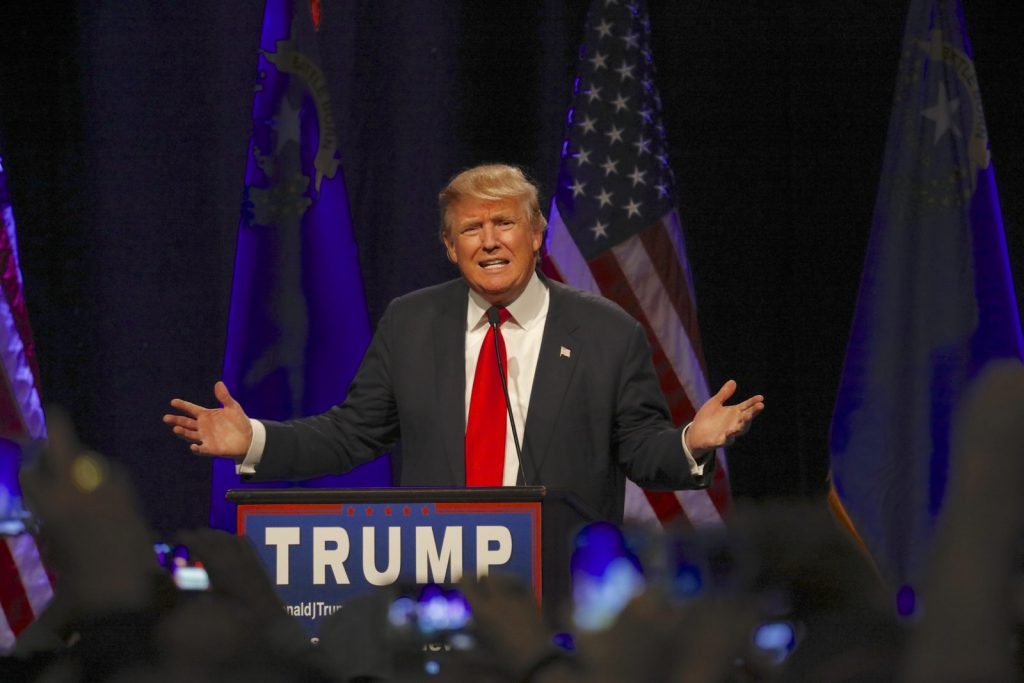
Published October 21, 2017
Conventional wisdom tells us that Donald Trump is the antithesis of Ronald Reagan. But in fact, Trump is far closer to Reagan’s brand of conservatism than the Republican congressional leadership is.
At first blush, this seems preposterous. Reagan was a sunny personality, much like his boyhood idol, Franklin Delano Roosevelt. Trump is anything but. Reagan used humor to defuse his critics; Trump clearly prefers insults. Reagan spoke often of America’s promise, while Trump speaks more of its decline. Reagan condemned bigots and racists. Trump’s facially evenhanded approach to the violence in Charlottesville, Virginia, has convinced many that he shares white nationalist beliefs.
Despite these key differences, Trump’s active leadership style and his combination of populism with market economics is far closer to Reagan’s words and deeds than anything House Speaker Paul Ryan of Wisconsin or Senate Majority Leader Mitch McConnell of Kentucky offer.
From the moment Trump entered the 2016 presidential race, he ran as a tribune of the forgotten American. Telling blue-collar workers that America’s political and financial elites had abandoned them, he campaigned on populist economics (reverse the North American Free Trade Agreement and Trans-Pacific Partnership, protect entitlements) and populist cultural issues (immigration, guns, political correctness). He combined this with support for certain orthodox GOP ideas, including large tax cuts, deregulation and appointing judicial conservatives to the Supreme Court. This mix enabled him to beat many favored rivals for the GOP nomination and win the general election.
Reagan followed a similar script in his presidential campaigns. He championed populist cultural issues (opposition to forced busing, gun control and the Equal Rights Amendment) and struck to an anti-establishment tone. Saying as early as 1964 that conservatives represented “the forgotten American,” Reagan focused on jobs rather than growth. Even Reagan’s signature market economics struck a populist tone. His tax cuts always gave low- and middle-income taxpayers significant relief, even if that meant he didn’t cut the top rate as much as some wished.
Trump is also arguably closer to Reagan on hot-button issues like entitlements, immigration and trade than the common wisdom recalls. Reagan generally exempted programs like Social Security, Medicare and Medicaid from budget cutting — even as the deficit exploded.
Reagan was an adamant free trader, but he never hesitated to impose sanctions on foreign companies if they engaged in unfair practices. His tariffs on Asian motorcycle companies, for example, helped save the American icon Harley-Davidson from bankruptcy.
Reagan also supported amnesty for illegal immigrants — though only as a condition for employer sanctions and other restrictions he believed would stem the flow of what he called economic migration. He believed even America was not so rich that it could take in every person who wanted to sup at its table.
We can see the Trump-Reagan symmetry in the degree to which each attracted support from blue-collar non-Republicans. Both men received high support from these voters for their times — bringing longtime Democratic voters into the Republican camp. They both carried the blue-collar-dominated Midwestern states of Indiana, Iowa, Michigan, Ohio, Pennsylvania and Wisconsin — the only Republicans to do so in the past 40 years.
Indeed, these states are so important that no candidate who has carried all six has ever lost the presidency. Trump’s victories there allowed him to win despite losing the popular vote by more than 2 percentage points, something no candidate had done since 1876.
The Republican congressional leadership proclaims fidelity to Reagan’s ideas, but its deeds don’t match its words. The leadership has been AWOL on the populist issues of our day, allowing illegal immigration to continue and permitting foreign competition to hollow out communities without resistance. They have ignored the rising tide of restrictions on free speech and protests on our nation’s campuses and streets. It’s not for nothing that Ryan’s and McConnell’s favorability ratings are far lower than Trump’s.
Ryan and McConnell would surely reject this characterization — perhaps mentioning their tax reform and Obamacare repeal plans as proof that the Reagan flame still burns brightly on their watch. But their plans are so far from Reagan’s actual principles that it mocks the great man’s memory to compare them.
The Obamacare replacement bills are cases in point. Reagan would surely have opposed Obamacare, because it established a degree of federal control he would have abhorred. But he was careful in addressing entitlements already in place, attempting to ensure that those most financially deserving of assistance received it. He also was willing, on rare occasion, to increase taxes when necessary to sustain that assistance.
The House and Senate bills, on the contrary, drastically cut assistance to some of the neediest recipients, while often favoring tax cuts and budget cuts over maintaining a tight safety net. Reagan would never have prioritized saving money over saving lives.
Even the proposed tax reforms run counter to Reagan’s. Ryan’s principles, released last year, would give little, if any, tax relief to those with below-average incomes. It would also hike taxes for many upper-middle-income families by wiping out their personal exemptions and virtually eliminating itemized deductions.
Reagan’s bills, however, tried to ensure that tax relief flowed to those who needed it — which, in practice, meant that every individual would see their taxes cut. I believe he was as proud of the increased personal exemption in his signature 1986 tax reform as he was of reducing the top individual rate to 28 percent. For Reagan, individuals came before ideology.
Reagan is viewed as a friend of freedom, but that’s not how he wanted us to remember him. His epitaph, etched on his gravestone in his beloved sunny Southern California, tells us his core beliefs: “Man is good, what is right will eventually triumph, and there is purpose and worth to each and every human life.”
For all Trump’s coarse bluster, his fans see him as the only leader who really cares about people like them. The congressional GOP leadership disagrees, but to paraphrase the Gipper, it’s not that our congressional friends are wrong, it’s just that so much of what they know just isn’t so.
To become real Reaganites, Ryan, McConnell and their allies need to place helping people above pushing free-market ideology. We’ll see if they are up to the task.
Henry Olsen, a senior fellow at the Ethics and Public Policy Center, is the author of “The Working Class Republican: Ronald Reagan and the Return of Blue-Collar Conservatism.”





